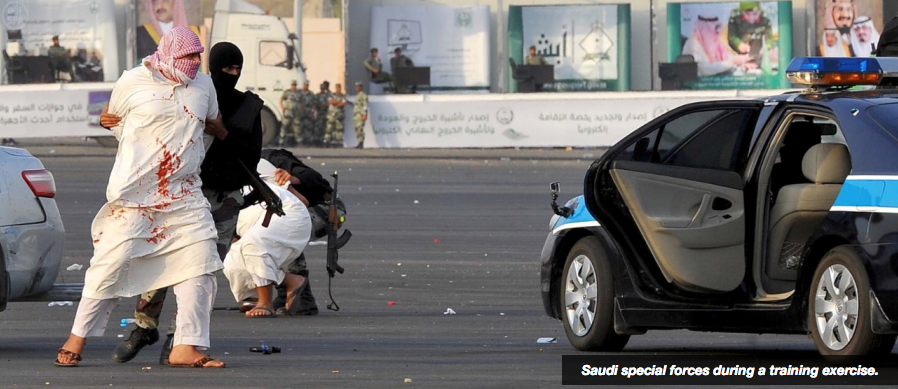Saudi Arabia has arrested 49 suspected terrorists over the past 10 days, according to Saudi officials and as reported in the Saudi Gazette. The arrests were “a preemptive crackdown in various parts of the Kingdom,” security sources said, adding that the suspected terrorists surrendered without any resistance.
They consisted of 36 Saudis, six Syrians, four Yemenis, a Sudanese and a Filipino in Saudi Arabia.
In a separate Saudi Gazette report, as many as 532 suspected members of the self-described Islamic State, or Daesh, are “under investigation prior to their trial at Criminal Court in Riyadh.” These suspects are accused of planning a number of terrorist operations in the Kingdom, according to the Saudi Gazette, including strikes on the U.S. Embassy in Riyadh as well as prisons holding other Daesh captives.
The majority of those already arrested terrorist suspects are Saudis, but they also include Egyptians, Yemenis, Jordanians, Algerians, Chadians, Nigerians and other persons belonging to unidentified nationalities, according to the Saudi Gazette. They include four experts in manufacturing explosives and preparing booby-trapped cars, the report said.
The new arrests and long list of suspected members of Daesh that await trail in Riyadh highlight two noteworthy points about Saudi Arabia’s response to extremism. First, that Saudi Arabia is a prime target of Daesh operatives and affiliates living inside the Kingdom. Daesh has already claimed responsibility for several terrorist attacks in 2015, including on a mosque near Saudi Arabia’s border with Yemen in the south and in attacks in Saudi Arabia’s Shia-majority Eastern Province, aimed at provoking sectarian hatred. Second, that Saudi Arabia’s government continues to prioritize it’s fight against domestic extremism.
Writing in Arab News about Saudi Arabia’s decade-plus fight against extremists, columnist Abdulateef Al-Mulhim discusses Saudi Arabia’s “open and transparent” campaign in the Saudi media to fight terrorism that has required stiff punishment as a deterrence to future crimes, like the execution of 47 individuals earlier this month.
Though Saudi Arabia has been heavily criticized for these executions, that they send a strong message seems a point of agreement.
“Their names and crimes were announced to the world. This is a strong message to anyone who tries to disturb the peace in the Kingdom and threaten the public,” Al-Mulhim said.









